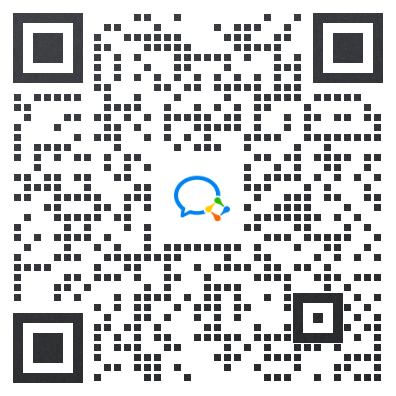考博英语阅读理解模拟试题(二)
摘要:阅读理解是考博英语的必考题型,做这类题需要考生多加练习。希赛网考博英语频道为大家整理考博英语阅读理解专项练习,希望各位多多练习。更多相关资讯,请关注希赛网考博英语频道。
阅读理解是考博英语的考题型之一,考博英语阅读理解可以细分为态度题、主旨题、指代题、词汇题、例证题等题型,想要攻克考博英语阅读,少不了平日的点滴积累。希赛网考博英语频道为大家分享考博英语阅读理解模拟题,希望能够帮助到大家。
He emerged, all of a sudden, in 1957: the most explosive new poetic talent of the English post-war era. Poetry specialised, at that moment, in the wry chronicling of the everyday. The poetry of Yorkshire-born Ted Hughes, first published in a book called “The Hawk in the Rain” when he was 27, was unlike anything written by his immediate predecessors. Driven by an almost Jacobean rhetoric, it had a visionary fervour. Its most eye-catching characteristic was Hughes's ability to get beneath the skins of animals: foxes, otters, pigs. These animals were the real thing all right, but they were also armorial devices—symbols of the countryside and lifeblood of the earth in which they were rooted. It gave his work a raw, primal stink.
It was not only England that thought so either. Hughes's book was also published in America, where it won the Galbraith prize, a major literary award. But then, in 1963, Sylvia Plath, a young American poet whom he had first met at Cambridge University in 1956, and who became his wife in the summer of that year, committed suicide. Hughes was vilified for long after that, especially by feminists in America. In 1998, the year he died, Hughes broke his own self-imposed public silence about their relationship in a book of loose-weave poems called “Birthday Letters”. In this new and exhilarating collection of real letters, Hughes returns to the issue of his first wife's death, which he calls his “big and unmanageable event”. He felt his talent muffled by the perpetual eavesdropping upon his every move. Not until he decided to publish his own account of their relationship did the burden begin to lighten.
The analysis is raw, pained and ruthlessly self-aware. For all the moral torment, the writing itself has the same rush and vigour that possessed Hughes's early poetry. Some books of letters serve as a personalised historical chronicle. Poets' letters are seldom like that, and Hughes's are no exception. His are about a life of literary engagement: almost all of them include some musing on the state or the nature of writing, both Hughes's own or other people's. The trajectory of Hughes's literary career had him moving from obscurity to fame, and then, in the eyes of many, to life-long notoriety. These letters are filled with his wrestling with the consequences of being the part-private, part-public creature that he became, desperate to devote himself to his writing, and yet subject to endless invasions of his privacy.
Hughes is an absorbing and intricate commentator upon his own poetry, even when he is standing back from it and good-humouredly condemning himself for “its fantasticalia, its pretticisms and its infinite verballifications”. He also believed, from first to last, that poetry had a special place in the education of children. “What kids need”, he wrote in a 1988 letter to the secretary of state for education in the Conservative government, “is a headfull [sic] of songs that are not songs but blocks of refined and achieved and exemplary language.” When that happens, children have “the guardian angel installed behind the tongue”. Lucky readers, big or small.
1.The poetry of Hughes’s forerunners is characteristic of ______
[A] its natural, crude flavor.
[B] its distorted depiction of people’s daily life.
[C] its penetrating sight.
[D] its fantastical enthusiasm.
2.The word “vilified” (Line 4, Paragraph 2)most probably means _____
[A] tortured
[B] harassed
[C] scolded
[D] tormented
3.According to the third paragraph, Hughes’s collection of letters are _____
[A] the exact reason responsible for both his fame and notoriety.
[B] personalized description of his double identity as a public and a private figure.
[C] reflections of his struggle between his literary devotion and the reality.
[D] his meditation and exploration on the literary world and the essence of literature.
4. From the letters, we may find the cause of Hughes’s internal struggle is _____
[A] his eager and unsatisfied passion for literature.
[B] that he is a part-private, part-public creature.
[C] that he is constrained by the fear of his privacy being exposed to the criticism of the public.
[D] the moral torment exerted by himself.
5. By “lucky readers” in the last sentence, the author means_____
[A] children who are imparted with the beauty and wisdom of poetry.
[B] children who have a headfull of fantastic and verbally perfect songs.
[C] children who own blocks of refined and achieved and exemplary language.
[D] children who are believed to have the guardian angel installed behind the tongue.
答案:BCDCA
注:以上内容来源于网络,如有侵权,可联系客服删除。
延伸阅读
- 2026全国医学博士英语统考准考证打印时间
- 2026全国医学博士英语统考准考证打印流程
- 上海戏剧学院2026年招收攻读博士学位研究生招生简章
- 考博英语全国医学统考真题考情分析
- 桂林医科大学2026年在职医师攻读临床医学博士专业学位人员招生简章
- 研究生上多少年可以考博士

考博英语微信公众号

了解更多考试动态
考博英语备考资料免费领取
去领取

扫一扫,进入微信小程序,各院校历年真题随时随地可刷题,助力考博英语提分。
- 0
- 2
- 2
 专注在线职业教育25年
专注在线职业教育25年







 扫描二维码
扫描二维码
 扫描二维码
扫描二维码








